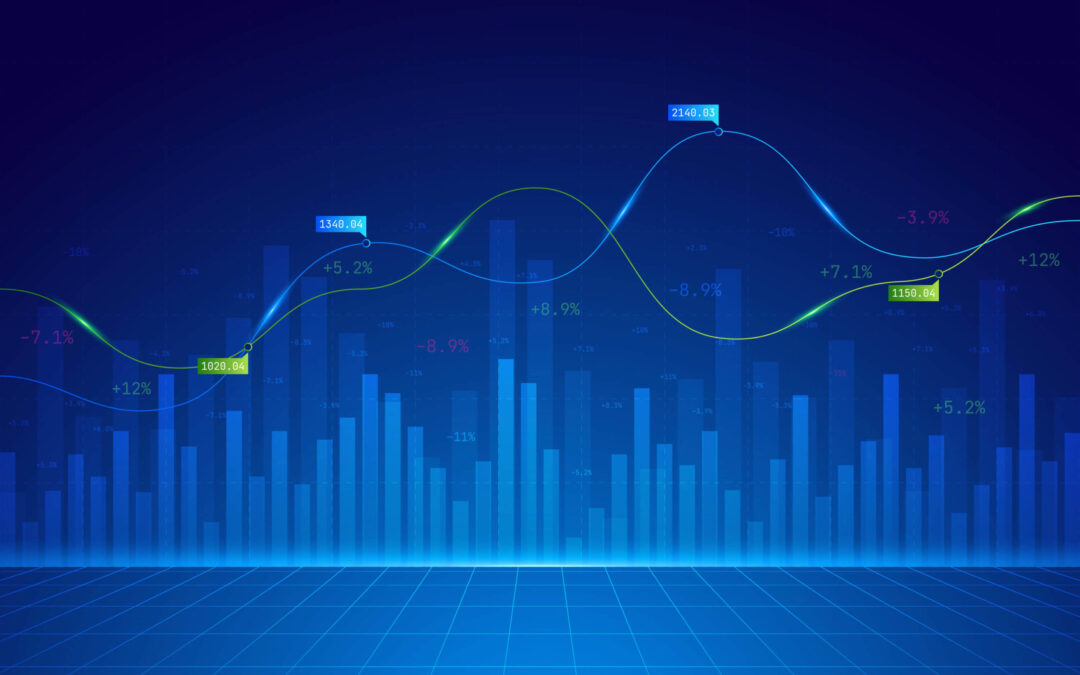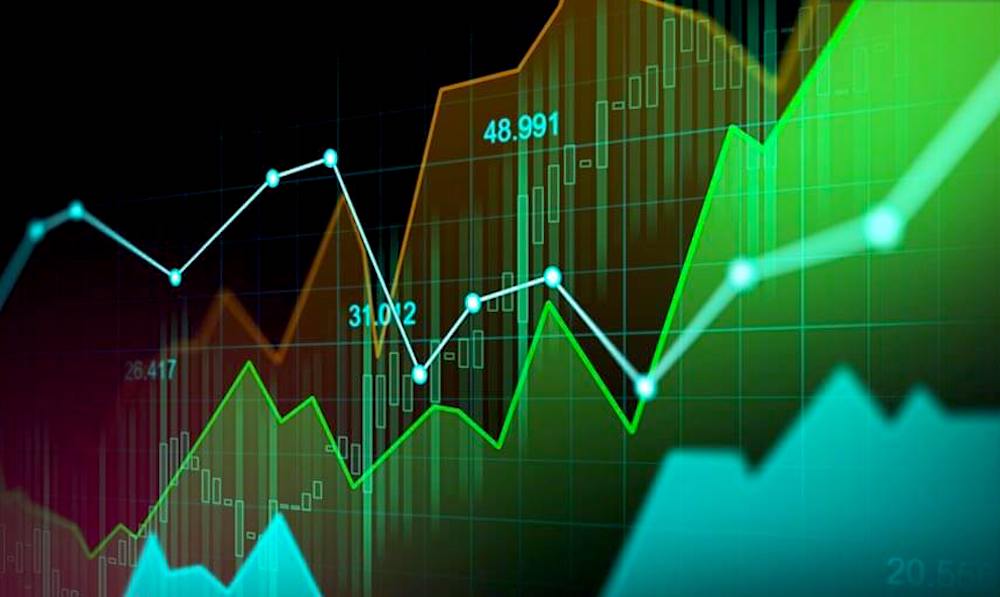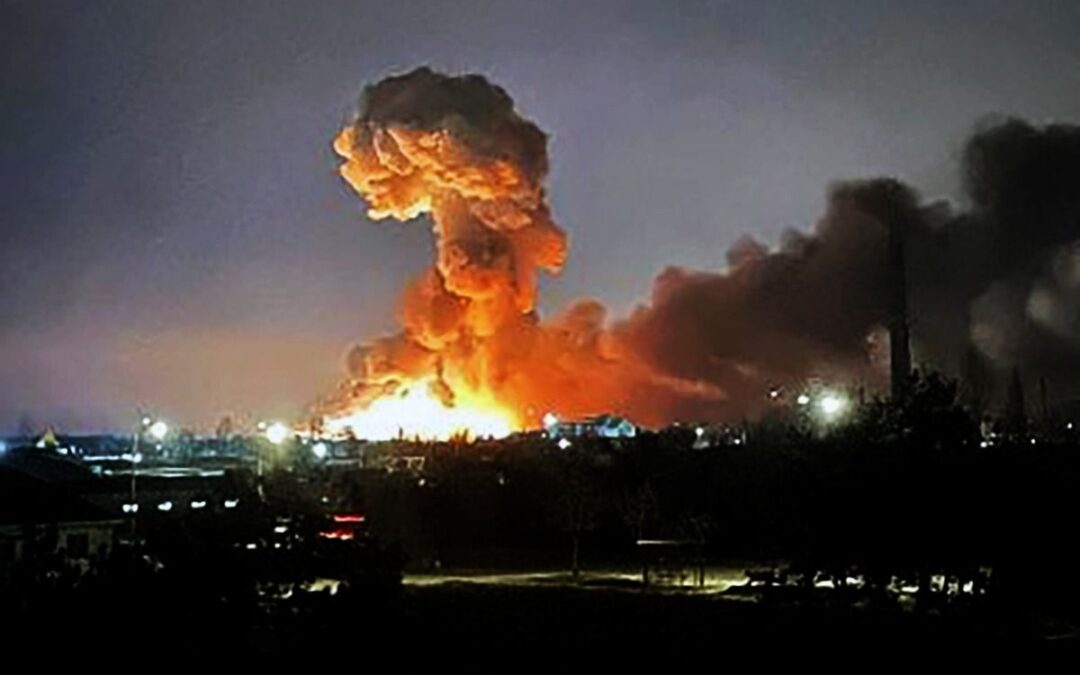
by Nicholas Mitsakos | Innovation, Investment Principles, Investments, irrationality, The Market, Transformative businesses, uncertainty, Writing and Podcasts
Predicting what’s next has been a fool’s game, and it continues to be. The S&P 500 was up 26% in 2023 and 25% in 2024, for the best two-year stretch since 1997-98. That brings us to 2025. What lies ahead? Rationality, Optimism, exuberance, disappointment, correction, and more frequent and intense volatility—with uncertainty about the timing, extent, and outcome. Is enthusiasm for new technology creating a bubble, and will the bubble burst? Optimism has prevailed in the markets since late 2022, generating above-average valuations and astonishing returns for some (primarily AI-related) equities. Stocks in most industrial groups sell at high multiples, but enthusiasm for artificial intelligence and the persistence of the Magnificent 7 drive most market expectations. There is the implicit presumption that the top seven companies will continue to be successful and that the “new thing” (artificial intelligence) will drive valuations even higher. However, stocks may sit still for the next 10 years as earnings rise and multiples return to earth. Another possibility is that the multiple correction is compressed into a year or two, implying a significant decline in stock prices. Be aware of Mr. Market’s irrational behavior. It’s not going to be a smooth pathway forward; there will be great investment opportunities, as there are in any market, but overall, it’s a high starting point. It’s time to be neutral.

by Nicholas Mitsakos | Algorithmic Trading, Artificial Intelligence, Book Chapter, Finance, Financial Technology, Investment Principles, The Market, Writing and Podcasts
Volatile stock and bond markets are not going away anytime soon, and investment strategies focused on discipline, market-tested algorithms, and the patience to withstand near-term turbulence will continue to deliver better results. As US stocks have dropped about 25% and US long-term treasuries dropped nearly 30%, specific strategies that combine futures, derivatives, and other securities along with market-neutral equity trading have produced superior returns. This impressive overall performance can be expected to profit from market movements and even market shocks that, while specifically unpredictable, will be inevitable from now on. In the face of dismal predictability and lack of confidence, it is discipline, time-tested algorithms, and a multi-strategy perspective toward broad market sectors that have outperformed and will continue to deliver superior risk-adjusted returns and better overall performance.

by Nicholas Mitsakos | Artificial Intelligence, Biotechnology, Book Chapter, Finance, Financial Technology, Investment Principles, Technology, The Market, Writing and Podcasts
The onslaught of market-making bad news seems almost a daily event. A gloomy picture of slowing economic growth, elevated inflation, and confusing fiscal and monetary policy has added a lethal mixture to the market’s performance. Fiscal stimulus is sidelined, and monetary policy is constricting economic growth and entrepreneurial innovation. It makes for a gloomy outlook and an even more depressing long-term perspective. The next 10 years look more like a lost decade. High-growth company valuations have been significantly discounted, and over time as discount rates drop, their valuations are likely to increase substantially. Higher-yielding fixed income securities will be a standout performer as interest rates are reduced, the higher-yielding BDCs, REITs, leveraged loan securities, and high cash flow instruments, along with high-dividend equities, will prove extremely attractive and are currently available at bargain prices. Providers of value and users of value will be the winners for the next decade. Those generating real cash flow and disruptive innovation will define the next decade.

by Nicholas Mitsakos | Artificial Intelligence, Finance, Financial Technology, Investment Principles, The Market, Writing and Podcasts
The market is consensus thinking. Performing above average means being different. Simply being different doesn’t define success. Success means understanding what it takes to not only think differently but understand when consensus thinking is wrong and executing and implementing those choices effectively. Doing better (generating superior returns with less overall risk) is difficult. Understanding “what’s really going on” is not a simple formula. It requires different, deeper, and better thinking. Depart from the investment crowd, focus on the factors that are necessary and, in combination, sufficient to make a difference, sustain performance and manage risk. It’s not easy or obvious, but it is superior.

by Nicholas Mitsakos | Algorithmic Trading, Artificial Intelligence, Financial Technology, Investment Principles, Investments, irrationality, The Market, Writing and Podcasts
Let the data tell the story. Remove human bias. Intuitive investment ideas may seem compelling, but more often, these ideas are time-consuming, inefficient, and inferior. Data and verification are more effective, and this approach has generated more successful investment strategies. Diverse thinking, diverse data, innovative approaches, and a willingness to be wrong and start over typically bring superior results. Trust the model. Data, discipline, and rigor win more often.

by Nicholas Mitsakos | China, Investment Principles, Public Policy, Russia, The Market, Writing and Podcasts
While most of Europe and the United States suffer sweltering heat, darkening economic skies and bitter winter of discontent are looming. Threats to the world economy are chilling. Rising interest rates are slowing activity for discretionary spending while rising prices for nondiscretionary spending are also slowing economic activity. It would be miraculous if the compounding of both effects would not lead to a recession in both Europe and the US. China’s growth has stalled. The Ukraine conflict will ultimately resolve itself to the West’s dramatic disadvantage and the West seems to be willing to let it happen – much to each economy’s long-term disadvantage. Don’t count on anything miraculous.

by Nicholas Mitsakos | Economy, Finance, Investment Principles, The Market, Writing and Podcasts
The Fed’s latest projection was for annual inflation to fall from over 5% at the end of 2022 to about 2.5% by the end of 2023. At this point, we’re not taking the Fed’s projections seriously, and for good reason. They were spectacularly wrong when a depth of understanding and insight into critical future events was essential. In other words, the understanding of how the economy works, the Fed’s ability to predict the effects of economic shocks, and its policy actions have gotten no better over the last 50 years. More specifically, price stability doesn’t seem to be coming anytime soon because people simply don’t think it will. If we look at the combination of rising wages and inflation expectations for both consumers and businesses, it is these expectations that drive inflationary pressures more than central bank policy. Inflation levels will be stickier than first theorized by the Fed, and the time to resolution is likely longer. Expect more “surprises” that will be no surprise.

by Nicholas Mitsakos | Book Chapter, Investment Principles, Investments, irrationality, The Market, Writing and Podcasts
The world may appear to be a rational, deductive place if you are a scientist. But not if you are an investor attempting to understand how markets work. Financial markets are human creations, and humans are irrational. Economics, a truly dismal social science, is an attempt to look backward and create explanatory algorithms about what happened and why. They may have some success with this. But as predictive models, they are mostly useless. More often, they destroy value versus conveying any understanding about economic and business functions, and therefore, give not only useless but awful and typically value-destroying predictions. Participating in the markets requires a broader, more methodical and disciplined approach. Since irrationality pervades most activity, markets move dramatically with uncertainty, and investors react with dramatic moves based on even more uncertainty and lack a reasonable level of understanding and longer-term perspective about what is going on. The world now is more dynamic, volatile, uncertain, and unpredictable. Irrationality drives most market decisions and rising above the noise to be more thoughtful, think deeply and slowly to understand what’s going on, and identify the handful of factors (typically very few) that make all the difference to investment success is the true challenge we face today. That challenge takes work and thoughtful strategies in our irrational world. That world will remain fundamentally irrational from now on, and thoughtful strategies are the only way to succeed in this irrational environment.
by Nicholas Mitsakos | Book Chapter, Investment Principles, Investments, The Market, Writing and Podcasts
[iframe style=”border:none” src=”//html5-player.libsyn.com/embed/episode/id/22640267/height/100/width//thumbnail/yes/render-playlist/no/theme/custom/tdest_id/2730845/custom-color/3a8da9″ height=”100″ width=”100%”...

by Nicholas Mitsakos | China, commodities, Economy, Investments, The Market, Writing and Podcasts
Beyond 2022, higher interest rates and slower global growth most likely trigger a market correction, perhaps at an exorbitant cost. As discounts rates rise and growth assumptions lower, many stocks based assumptions that low interest rates and high growth would sustain for many years will see dramatic repricing and much lower valuations.
Energy and commodities, and the businesses associated with them, are in for a very bumpy ride, but there is a fundamental sustainability to their cash flow and long-term attractiveness as world supply reorders. That which is essential prevails.
The luxury of thinking we have halcyon days of global growth and geopolitical stability may not be with us for some time to come. It is perhaps time to plan for that now.

by Nicholas Mitsakos | Blog, The Market, Writing and Podcasts
The breadth of the economic and market impact will depend on what types of sanctions are applied by the West. It’s likely such measures would further target a combination of Russian banks, investment, and trade (such as through barring Russia from the cross-border SWIFT network), and potentially, energy. In response, Putin could also retaliate through the energy sector, as well as through cyberattacks on the United States and Europe. The situation is fluid to say the least.
I approach these things thinking like a chess player. What is my opponent’s to best move? What is my best move, or least worst move, in response? And so on… the whole board not only includes Ukraine, but also Estonia, Latvia, and Lithuania, as well as China and Taiwan. If the West is unwilling to do anything meaningful except give passionate speeches, that is definitely a cue for China to be more aggressive.

by Nicholas Mitsakos | Book Chapter, Currency, Economy, Finance, Investment Principles, The Market, Writing and Podcasts
Financial markets are imbalanced and lack liquidity in crucial sectors, even historically stable and predictable markets such as the global bond and currency markets. Investments are slanted in one direction more frequently and the markets are vulnerable to big price swings as a result. These large global markets are not immune to ever more lopsided trades creating extreme volatility. This occurs even when a small change occurs in positions, sentiment, or news. Even the world’s most liquid markets, US dollar currency trades and US Treasuries, are seeing skewed positioning resulting in surprisingly large shifts in prices and Treasury bond yields. The market now leans too far one way or the other, and that imbalance will be forced to reverse more powerfully and unpredictably.











